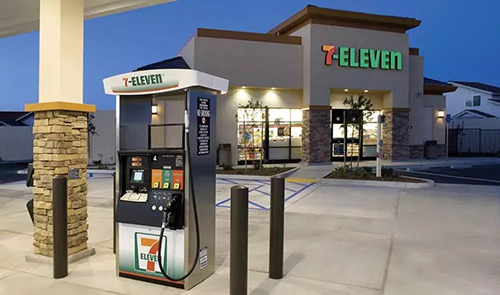How to control the measurement accuracy of fuel dispensers?
The measurement accuracy control of fuel dispensers is a key link in ensuring fair and accurate fuel trading. The following are some main measures to control the measurement accuracy of fuel dispensers:

1. Strictly implement the national metrological verification regulations
Establish a self-test system: Gas stations should establish a self-test system in accordance with the national metrological verification regulations, set a self-test cycle (usually no more than one week, preferably twice a week), and equip self calibrating measuring standards that meet the requirements of the regulations for regular self-test.
Timely reporting and verification: If the measurement error of the fuel dispenser exceeds the allowable range during self testing, refueling should be stopped immediately and reported to the local legal metrology verification institution for verification.
2. Pay attention to equipment maintenance and updates
Timely maintenance: If the fuel dispenser equipment is damaged, it should be repaired immediately. After the maintenance is completed, it must be verified and qualified by a legal metrological verification institution before it can be put back into use.
Regular replacement: When the fuel dispenser has been in use for too long (such as up to 4 years) or frequently malfunctions, it should be replaced in a timely manner to avoid a decrease in measurement accuracy caused by equipment aging. If economic conditions permit, advanced equipment can be introduced to further improve measurement accuracy.
3. Strengthen lead seal management
Factory lead seal: The fuel dispenser needs to undergo strict inspection before leaving the factory, and the manufacturer's metrological verification department will conduct a one-time anti-counterfeiting lead seal to ensure that key components are not replaced during transportation.
Lead seal before use: After the fuel dispenser is delivered to the destination, the relevant personnel at the gas station need to confirm that the lead seal is complete, and apply to the local legal metrological verification agency for initial verification and seal before use.
4. Environmental factor correction
Equipped with sensors: Modern fuel dispensers are typically equipped with temperature and pressure sensors to correct the impact of changes in fuel density under different environmental conditions on measurement results, ensuring measurement accuracy.
5. Improve personnel quality and standardize operations
Training Enhancement: Gas stations should focus on training the quality of their staff, providing opportunities for refueling and maintenance personnel to improve their professional skills, enhance their understanding of fuel dispensers, and improve their operational and maintenance abilities.
Standardized operation: Develop and implement strict fuel dispenser operation standards to reduce measurement errors caused by improper operation.
6. Regular calibration and maintenance
Regular calibration: The fuel dispenser needs to be calibrated regularly to compare the measurement results with the standard fuel quantity, in order to determine if there are any differences and make adjustments.
Maintenance: including cleaning, lubrication, and replacement of parts to ensure the normal operation and measurement accuracy of the equipment.
7. Regulatory supervision and oversight
Compliance with regulations: The use of quantitative fuel dispensers is subject to regulatory and supervisory standards, and gas stations must ensure that the operation of fuel dispensers meets the requirements of precise measurement.
Social supervision: Gas stations should publicly display information such as fuel metering management system and supervision complaint hotline in prominent locations, accepting supervision from consumers and all sectors of society.
In summary, by strictly implementing the national metrological verification regulations, emphasizing equipment maintenance and updates, strengthening lead seal management, environmental factor correction, improving personnel quality and standardized operation, regular calibration and maintenance, and complying with regulations and accepting social supervision, various measures can be taken to effectively control the metrological accuracy of fuel dispensers and ensure fair and accurate fuel trading.





